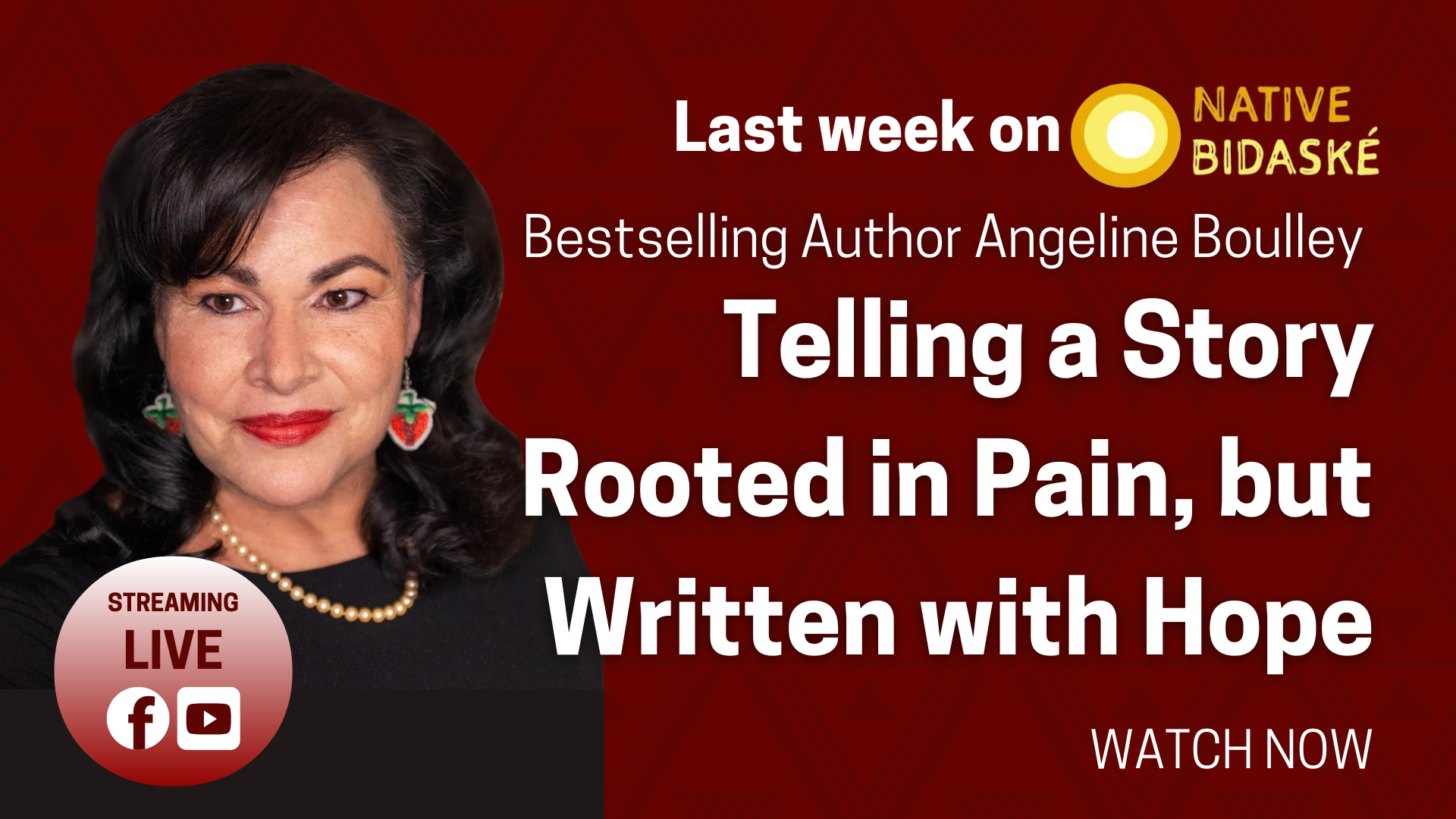
- Details
- By Native StoryLab
Bestselling author Angeline Boulley joined host Levi Rickert on Native Bidaské to talk about her newest novel, Sisters in the Wind, a powerful story about Native identity, the foster care system, and the Indian Child Welfare Act (ICWA).
The book follows Lucy Smith, a young Native woman wrestling with her identity and family history. Boulley admitted that Lucy was one of her most difficult characters to write:
“She’s so cloaked, she’s so afraid of getting close. It kind of felt like that in the writing of her.”
At its core, the novel explores the significance of Native identity and belonging. Boulley reminded readers that:
“Being Native doesn’t have to look any certain way… being Native is something that you claim, and once you do, what you do is what a Native person does.”
Beyond identity, Sisters in the Wind also sheds light on the foster care system and the ICWA. Boulley dove deep into the history, even reading the original 1974 Senate hearings and Supreme Court briefs. Her goal: to show how ICWA, when properly followed, protects Native children and families.
Boulley hopes the book resonates with both Native and non-Native readers alike. For Native readers, she wants them to “feel seen” and perhaps reconnect with their communities. For non-Native readers, she hopes they come to understand ICWA as “a gold standard” of child welfare.
Sisters in the Wind is Boulley’s third novel, following the acclaimed Fire Keeper’s Daughter and Warrior Girl Unearthed, continuing her exploration of Native experiences through powerful storytelling.
🔴 Read Levi Rickert’s review for his take on the novel.
📺 Watch the full Native Bidaské episode below.
Help us defend tribal sovereignty.
At Native News Online, our mission is rooted in telling the stories that strengthen sovereignty and uplift Indigenous voices — not just at year’s end, but every single day.
Because of your generosity last year, we were able to keep our reporters on the ground in tribal communities, at national gatherings and in the halls of Congress — covering the issues that matter most to Indian Country: sovereignty, culture, education, health and economic opportunity.
That support sustained us through a tough year in 2025. Now, as we look to the year ahead, we need your help right now to ensure warrior journalism remains strong — reporting that defends tribal sovereignty, amplifies Native truth, and holds power accountable.
 The stakes couldn't be higher. Your support keeps Native voices heard, Native stories told and Native sovereignty defended.
The stakes couldn't be higher. Your support keeps Native voices heard, Native stories told and Native sovereignty defended.
Stand with Warrior Journalism today.
Levi Rickert (Potawatomi), Editor & Publisher
